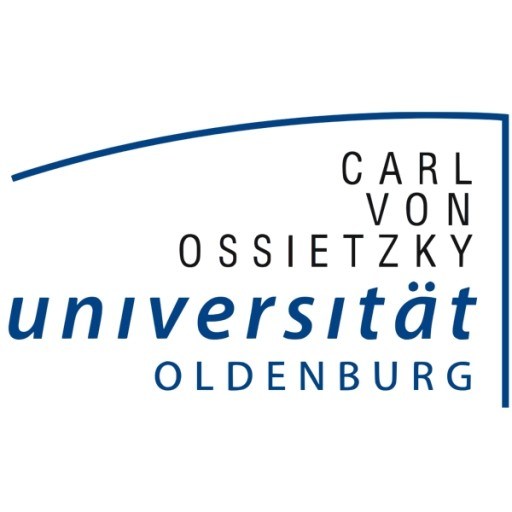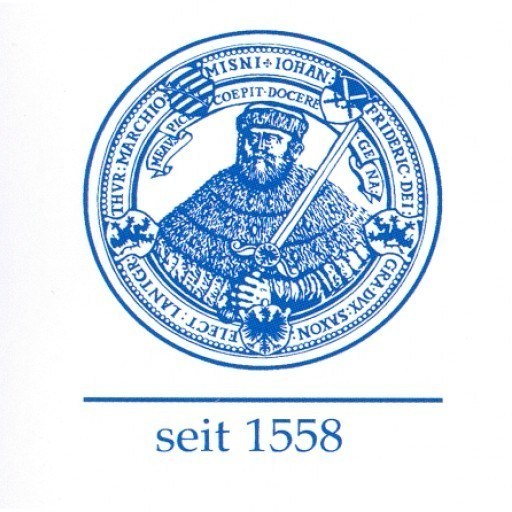Photos of university / #tukaiserslautern
The Master’s degree program in Microbial and Plant Biotechnology at the University of Kaiserslautern is a cutting-edge interdisciplinary program designed to equip students with comprehensive knowledge and practical skills in the fields of microbiology, plant science, and biotechnology. The curriculum emphasizes a balanced combination of theoretical foundations and applied research, preparing graduates for innovative careers in academia, industry, and research institutions. Students will explore the molecular mechanisms underlying microbial and plant processes, gaining insights into genetic engineering, metabolic pathways, and biotechnological applications aimed at sustainable development, agriculture, and environmental protection. The program offers specialized modules in fermentation technology, gene editing techniques, plant breeding, and bioprocess engineering, providing a hands-on learning experience through laboratories, projects, and collaborations with industry partners.
The program also fosters an international perspective, with courses taught by leading experts from Germany and abroad, and numerous opportunities for research exchanges and collaborative projects. Students benefit from state-of-the-art laboratory facilities and support from faculty members who are actively engaged in groundbreaking research. The study duration is typically two years, during which students are encouraged to participate in internships and research projects that enhance their practical competencies and professional networks. Graduates of this program are well-equipped to pursue careers in biotech companies, agricultural industries, environmental agencies, or continue their academic journey in doctoral programs. Emphasizing sustainability, innovation, and interdisciplinary approaches, the Master’s in Microbial and Plant Biotechnology at Kaiserslautern aims to develop forward-thinking scientists capable of contributing to global challenges through biotechnological solutions.
Educational organisation
Courses / Examination / CPTheory 1 / oral or written, graded / 6
Theory 2 / oral or written, graded / 6
Theory 3 / oral or written, graded / 6
Theory 4 / oral or written, non-graded / 6
Courses of choice / oral or written, non-graded / 15
Advanced Practical 1 / oral, graded / 12
Advanced Practical 2 / oral, graded / 12
Advanced Practical 3 / oral, non-graded / 12
Research Practical / oral, graded / 15
Master's Thesis / written, graded / 30
Theory 1:
This basic lecture course "Molecules, Cells, and Tissues" will provide a broad and comparative overview on different aspects of molecular and cellular biology. It will bring students from different (Bachelor's) backgrounds up to a level that allows them to participate in the various practical and theoretical courses of our Master's programme. It will be team-taught by a group of specialised lecturers who will recapitulate the essence of their subjects and connect this knowledge to other fields. Thus, students will repeat what they learned in the Bachelor's programme, obtain a broader overview on various aspects of biology, deepen their understanding, and interconnect their knowledge about different areas.
Theory 2:
Students acquire a deepened knowledge of theoretical contents and research topics in the fields of systems biology and plant biotechnology and learn how to evaluate them critically. They are able to work with English literature (textbooks, monographs, review articles, original research articles) to increase their knowledge about plant biotechnology and experimental systems biology. They increase their abilities to take part in scientific discussions and presentations.
Theory 3:
Students acquire a deepened knowledge of theoretical contents and research topics of applied microbial genetics, microbial pathogenesis and drug resistance mechanisms in bacteria and fungi, and learn how to evaluate them critically. They are able to work with English literature (textbooks, monographs, review articles, research articles) to increase their knowledge in the above-mentioned topics, and to develop their abilities to extract important information from as well as recognise weaknesses in published papers.
Theory 4:
Current topics in Systems Biology, Plant Biotechnology, Bioinformatics and Microbial Pathogenesis, with an emphasis on the research topics covered by the groups engaged in this study programme.
Courses of choice:
Depending on the courses chosen, students acquire deepened and broadened practical and theoretical knowledge of various biological and non-biological topics. They are able to increase their knowledge in diverse fields of science and expertise. They also acquire competences in general skills that are required for professional work (soft skills).
Advanced Practicals 1-3:
Working in groups of two over a period of five weeks, students perform experiments under research-like conditions, and document their results in written protocols. In the seminar, they present their experimental results in lectures, with posters or similar materials.
Research Practical:
Performing scientific work on a small research project using current methods and data analysis, students will be able to plan and execute experiments with an increasing degree of independence. They are able to present and to interpret their own experimental results in a written research report, and increase their abilities in scientifically-founded presentation and discussion. They acquire practical and theoretical expert knowledge with applied orientation.
Forms of assessment
Oral or writtenSee also educational organisation
Course objectives
Successful students will acquire an individual scientific profile and specific professional know-how. Degree holders will be capable of performing scientific work independently. They will be qualified to work in basic as well as applied science with a biological and biomedical orientation, including clinical research. Thanks to their training, degree holders will be able to cooperate with natural scientists from various disciplines. Operational areas comprise academic and corporate fields as well as public authorities.Language requirements
A good knowledge of English is required for admission to the Master's programme. Applicants need to prove their English language skills as follows:TOEFL Test: 550 points (paper-based test) / 213 points (computer-based test) / 80 points (Internet-based test)
or
IELTS: 6.0 points
Academic requirements
Bachelor's degree in Biology or BiotechnologyRestrictions apply depending on qualifications (to be announced)
TOEFL Test: 550 points (paper-based test) / 213 points (computer-based test) / 80 points (Internet-based test)
or
IELTS: 6.0 points
Enrolment fees
- Enrolment fee: approx. 200 EUR per semester, includes e.g.: free transportation in the area around Kaiserslautern (up to 100 km), more than 50 free university sports courses and more
- Assessment fee: 50 EUR single payment for the verification of foreign certificates
- Recommended: German Language & Orientation Course for international Master's students: 650 EUR single payment
Costs of living
High standards of living at low costs:Monthly costs: in total approx. 600-650 EUR to cover all personal expenses; e.g.: accommodation: approx. 280 EUR; health insurance: approx. 80 EUR; food: approx. 200 EUR
Cost of Living - a snapshot on regional prices
- Meal in refectory: 2.40 EUR
- Loaf of bread: 1.20 EUR
- Orange juice (1 litre): 1.00 EUR
- Rice (1kg): 0.90 EUR
Job opportunities
Student assistantships are available on a competitive basis. Excellent students have good chances of finding jobs in research projects, but these are not usually granted in advance. Support in finding a job as a student assistant is available through the International School for Graduate Studies (ISGS).Arrival support
International School for Graduate Studies (ISGS) at TU Kaiserslautern:Lending a hand in every phase of your stay
Before Your Arrival...
Effective pre-arrival communication helps you to regulate application, visa, residence permit and housing affairs. We supply any information and assistance needed to manage the application procedure and arrange accommodation on demand, and provide support on an individual basis by completing your documents for arrival.
Once You Are Here...
One major task of the ISGS team is to help the students settle into and become part of the university's community. The welcome-package includes pick-up from the train station and drop-off at the student's apartment as well as support with first shopping and highly individualised support in administrative and organisational issues, e.g. enrolment, registration with local authorities, opening a bank account and insurance matters.
Orientation Course - A prelude to German communication, academic culture & daily life. This course is offered twice a year prior to the start of the lecture period (6-8 weeks). It includes intensive language training, administrative support as well as cultural and social events. You will improve your knowledge of German and learn about our teaching styles and methods. In short, this course enhances orientation on campus, in town and in the student community. Once having established a foothold, you will have a clear mind for efficient studies or research!
http://www.uni-kl.de/isgs
Services and support for international students
The International School for Graduate Studies (ISGS) cares for international graduates & PhD candidates from the very decision of coming to Kaiserslautern until graduating or leaving the university. We lend a hand during every phase of your stay!Besides the individual support during the pre-arrival phase and warm welcome, we will provide you with continuing support that will enhance your learning:
Mentoring Your Studies and Research...
Whether during your studies or research, ISGS offers a variety of cultural and social events as well as extra-curricular activities enhancing your professional skills - such as workshops in academic culture or intercultural communication - which are supplementary and free. These are highly recommended for your personal development.
Jumpstart Your Career...
The ISGS offers professional development training on teamwork and leadership, time management and cross cultural training as well as specific language training with regard to job applications. To achieve outstanding success with regard to your thesis, the variety of our special offers for PhD students during the final period at university is permanently growing.
The ISGS establishes meetings with reputable contacts from science and industry within our Career-Services and sets up visits to factories, company headquarters and research institutes in order to help the students launch new careers.
http://www.uni-kl.de/isgs
Accommodation
The majority of our students live in residence halls located on or close to campus. Unlike in other countries, German dormitories are not owned or operated by the university, but by external institutions. The "Studierendenwerk" operates several large halls of residence in Kaiserslautern. Students submit housing applications directly to the Studierendenwerk, which typically have a waiting period. For international Master or PhD students, the International School for Graduate Studies (ISGS) at TU Kaiserslautern aims at arranging accommodation in these residence halls or in private accommodation within its pre-arrival service.The halls of residence have modern single, double or shared apartments with kitchenette, bathroom/WC, and modern facilities as well as internet access.
- Fully-furnished:
- Kitchenette: no plates & pots, etc.
- Bed & mattress (no blankets & pillows)
- Wardrobe
- Shelf, table, chair (no computer)
- Rent range: 200-280 EUR
http://www.uni-kl.de/international/master/prospective-students/travel-accommodation/accommodation/










